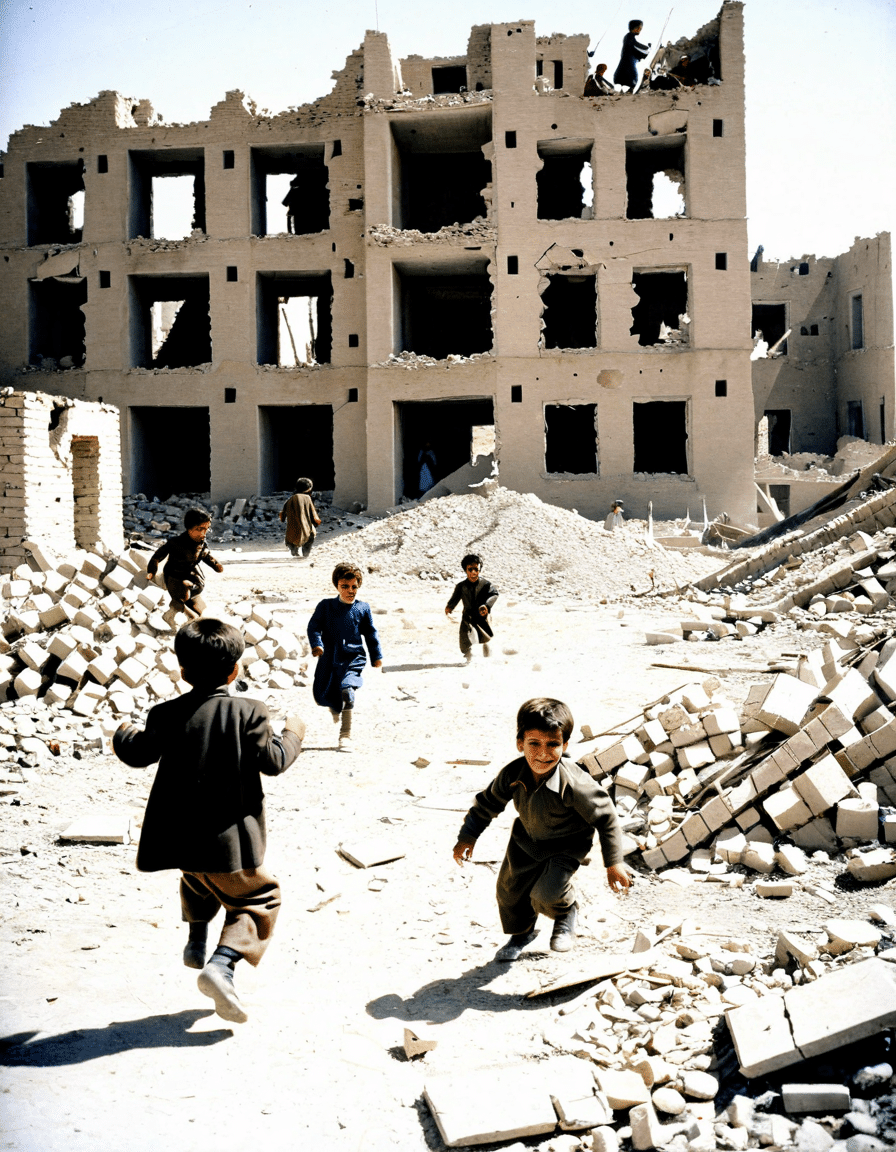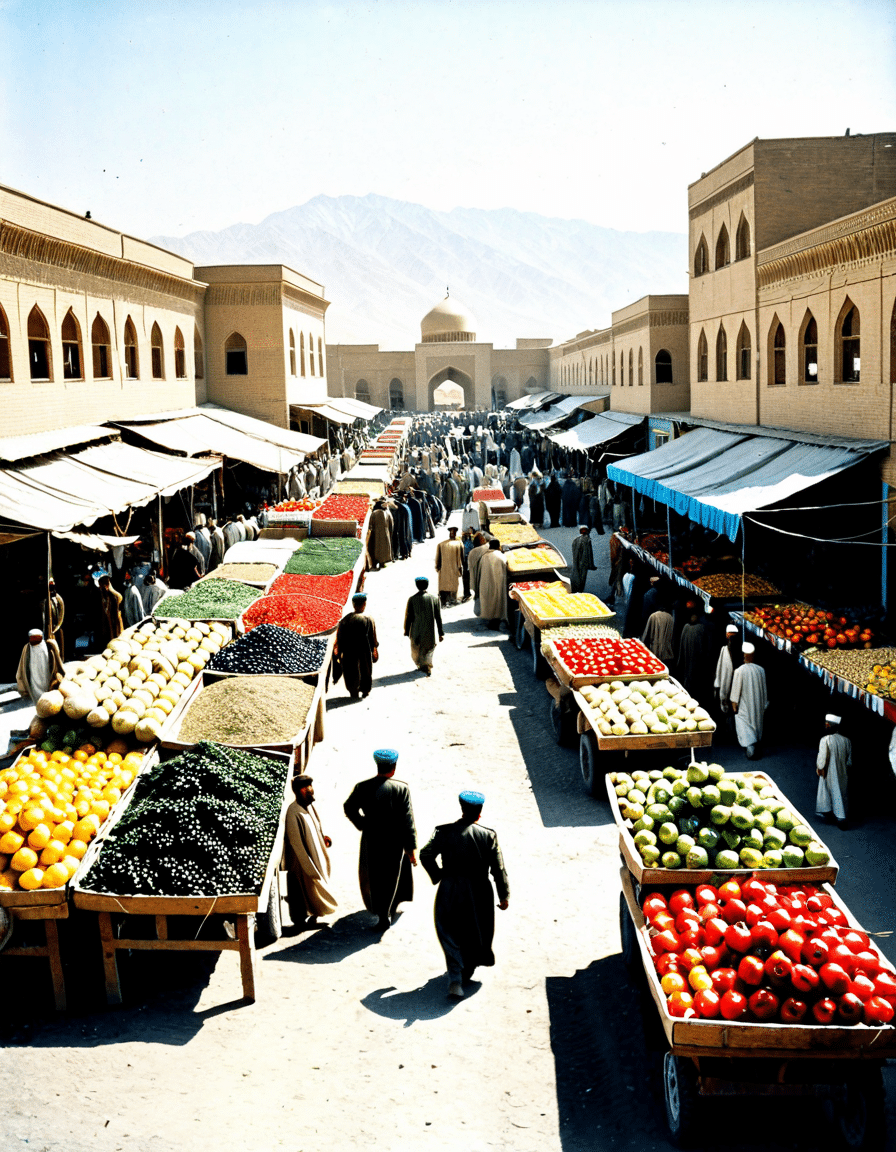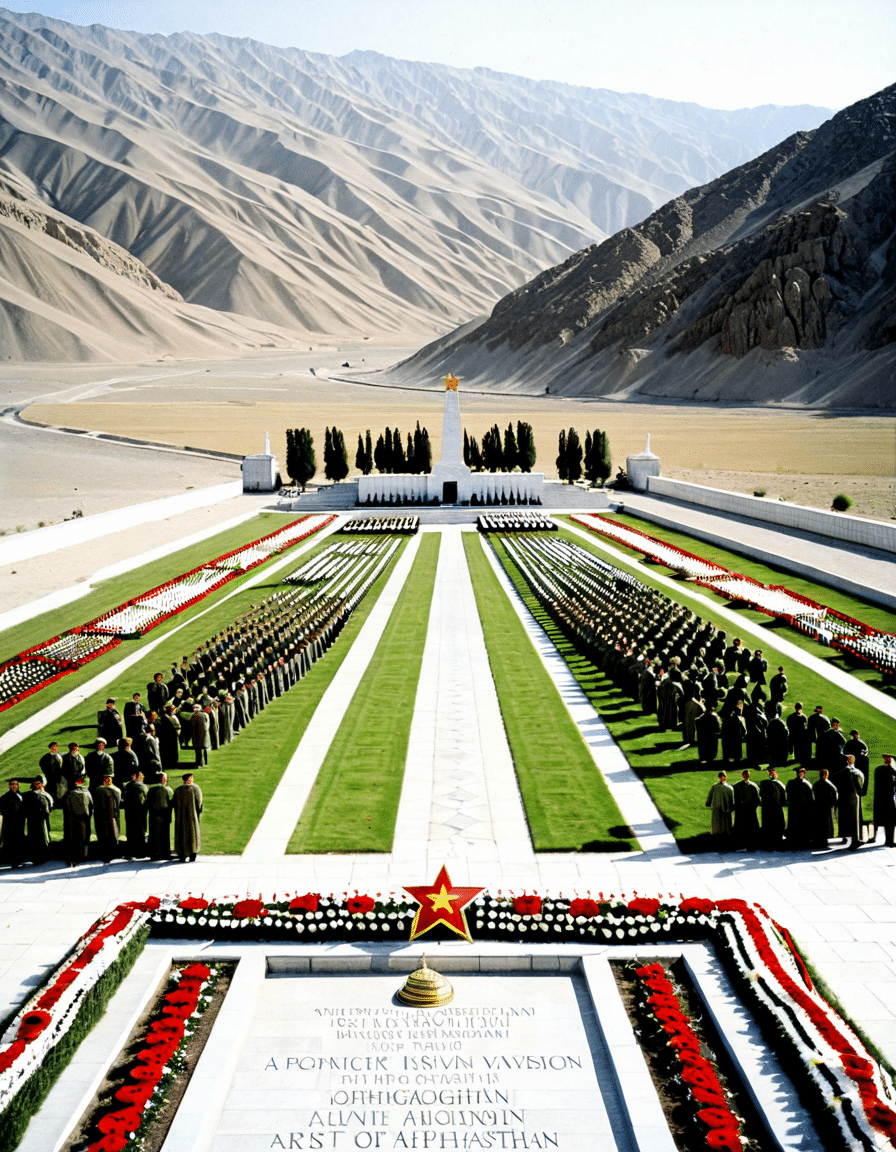
The Soviet Invasion of Afghanistan: Prelude and Initiation
The Soviet invasion of Afghanistan in December 1979 wasn’t just a spontaneous act; it was the culmination of a series of political upheavals within Afghanistan and a broader geopolitical struggle of the Cold War era. In April 1978, the Saur Revolution shook the foundations of the Afghan monarchy, leading to the establishment of a communist regime backed by the Soviet Union. However, this bold shift didn’t sit well with many Afghans. By the late 1970s, a growing discontent brewed, culminating in a fierce backlash against the new regime.
Fearing the rise of an anti-Soviet uprising, the Kremlin perceived the situation as a potential loss of influence in the region. Soviet leaders felt compelled to intervene under the pretext of “supporting a loyal ally.” They justified their invasion by claiming it was crucial to prevent the radicalization of Afghanistan. In their eyes, maintaining a stronghold in this strategic location was paramount. Little did they know that this decision would mark the beginning of a protracted conflict that would drain Soviet resources and morale.
The implications of the Soviet invasion of Afghanistan rippled beyond Kabul’s borders. This intervention showcased the East-West tension and laid the groundwork for various international repercussions. The invasion signified not just a clash of arms but an ideological fight, reinforcing the divide between communism and capitalism. As the world held its breath, the geopolitical landscape shifted dramatically, setting the stage for future conflicts.

Lasting Consequences: Top 7 Impacts of the Soviet Invasion of Afghanistan
The Soviet invasion of Afghanistan produced consequences that have shaped not only Afghanistan but the entire globe. Below are the seven most significant impacts of this historic event:
Arguably, the most far-reaching effect was the catalyzing of Islamist movements. The invasion galvanized figures like Osama bin Laden, who found inspiration in the war against Soviet troops. He established networks that would eventually evolve into Al-Qaeda. This wartime unity among Islamic fighters laid the foundation for future jihadist ideologies.
The Soviet invasion of Afghanistan set a precedent for U.S.-backed insurgencies. This interference wasn’t limited to Afghanistan alone; it reshaped conflicts across the Middle East, notably influencing insurgencies in Iran and Iraq. The model of using insurgents in proxy engagements soon became a common tactic in international relations.
The Soviet invasion of Afghanistan triggered a humanitarian disaster, displacing millions. Countries like Pakistan and Iran became immediate stakeholders, struggling to house and support the influx of Afghan refugees. This exodus strained resources and ignited social tensions in these host nations, leaving lasting scars on their societies.
The legacy of Vietnam prompted a significant shift in American military strategy. Under President Reagan, the United States viewed the conflict as a golden opportunity to counter Soviet hegemony. This mindset transformed American foreign policy, leading to expanded military involvement in various international conflicts, a trend we still observe today.
The prolonged engagement in Afghanistan drained Soviet economic and military resources. The invasion weakened morale and fostered political dissent within Soviet borders, acting as a significant element in the reforms that prompted the eventual dissolution of the Soviet Union in 1991. The war is now widely seen as a critical nail in the coffin of a faltering regime.
The Afghan resistance popularized guerrilla warfare strategies that proved effective against larger conventional forces. These tactics influenced various later conflicts and insurgencies globally. The modern-day military engagements often draw lessons from the Afghan fighters’ resourcefulness in contending against overlord armies.
Decades of conflict drastically transformed Afghanistan’s social landscape. War altered gender roles, shifted educational priorities, and sparked urbanization—all with far-reaching implications. The struggles over women’s rights and access to education continue to echo in Afghanistan, reverberating through generations.
Geopolitical Ramifications: The New World Order
The Soviet invasion of Afghanistan not only changed Afghanistan but also reshaped alliances on a global scale. It disrupted existing relationships and established new dynamics among powers like NATO and the Warsaw Pact. The invasion catalyzed alliances aimed at countering Soviet aggression, ultimately heightening tensions between East and West that characterized the late 20th century.
The conflict also fostered relationships between the U.S. and various Middle Eastern countries, leading to an era where foreign policy was heavily influenced by strategic alliances formed during the Soviet-Afghan War. These alliances have evolved but often display remnants of their Cold War origins. The global response to the invasion illustrated that the stakes in Afghanistan mattered significantly to the power struggles of superpowers.
Today, the geopolitical ramifications of the Soviet invasion of Afghanistan are still present. The nature of international relations continues to be impacted by the tensions birthed during that era of conflict, affecting everything from military strategies to economic aid programs. As we continue to navigate a complicated world, the shadows of the past remain ever relevant.
Voices from Afghanistan: Past and Present Narratives
To truly grasp the profound effects of the Soviet invasion of Afghanistan, personal narratives hold immense value. Veteran soldiers recount the sheer brutality of the conflict, sharing stories of resilience amid adversity. One former Mujahideen fighter mentioned how the invasion wasn’t just a battle against Soviet forces but a fight for freedom, touching upon the patriotic fervor that mobilized thousands.
Female activists also articulate how the war irrevocably altered gender dynamics in Afghanistan. Despite the oppressive regime of later years, many women express a longing for education, empowerment, and a voice in rebuilding their nation. These narratives underline the human cost of conflict and highlight the ongoing struggle for rights and recognition.
Moreover, civil society members, who lived through the upheaval, provide contemporary perspectives on the war’s legacy. They discuss the yearning for peace, stability, and a brighter future, often juxtaposed against the harsh realities that continue to plague their lives. These voices transform data into a gripping human experience, offering deeper insights into the effects of the Soviet invasion.
The Ongoing Impact: Reflections in 2026
As we look toward 2026, the shadows left by the Soviet invasion of Afghanistan still loom large. The ongoing humanitarian crises and the return of the Taliban to power serve as stark reminders of past conflicts. The Taliban’s governance raises questions about human rights, international relations, and future stability within Afghanistan, echoing haunting legacies intersected by decades of turmoil.
Despite international efforts to assist the beleaguered populace, challenges persist. The struggles faced by individuals and families trying to navigate daily life under a regime fraught with its own complications remind us of the long-term consequences of the Soviet invasion. Afghanistan’s path to recovery often feels like climbing a steep mountain amidst an unforgiving landscape of geopolitical interests.
International relations also reflect the war’s long shadow, with regional players like Iran and Pakistan continuing to exert influence over Afghan affairs. Tensions and negotiations inevitably hinge upon the historical context birthed from the Soviet invasion of Afghanistan, reinforcing the necessity of diplomacy in shaping a peaceful resolution to ongoing challenges.
Embracing the Future: Lessons Learned from History
The narrative surrounding the Soviet invasion of Afghanistan serves as a cautionary tale, illuminating the interconnections between aggression and its fallout on innocent populations. The lessons learned from this tumultuous chapter shine a light on the importance of advocating for diplomatic measures and humanitarian assistance. By prioritizing peace, stability, and healing over violence, we can aspire to mold a future free from the mistakes of the past.
History must guide our steps as we navigate an interconnected world. Understanding the precarious balance of international relations established by the Soviet invasion of Afghanistan can provide valuable insights for future policies. By fostering unity, emphasizing dialogue, and championing compassion, we can forge a path toward a more harmonious existence, ensuring that these lessons resonate through generations to come.
Soviet Invasion of Afghanistan: Fun Trivia and Interesting Facts
The Cold War Context
The Soviet invasion of Afghanistan in 1979 was a pivotal moment during the Cold War, showcasing a fierce struggle for power that left a mark on global politics. Interestingly, many people might not know that this invasion stemmed from fears of a rising Islamic fundamentalist movement amid the tumultuous backdrop of the Mediterranean region, which was then facing various geopolitical tensions. Speaking of conflict, just as North Korea has had its own intriguing history, Afghanistan found itself under significant stress during this period as well.
The Unfolding of Events
As the conflict escalated, the international community took notice. The U.S. responded by training the Mujahideen fighters, leading to a fierce resistance against Soviet forces. Here’s a quirky fact: the U.S.’s covert support laid the groundwork for what would become the rise of some surprising factions in the region. Isn’t it fascinating how historical events like the Soviet invasion of Afghanistan intertwine with things we observe today? Just as the waters between Turkiye Vs Georgia reflect ongoing tensions, Afghanistan became a complex chessboard for Cold War proxies.
Lasting Impacts and Cultural Footprints
The Soviet invasion not only altered Afghanistan’s political landscape but also affected its culture in various ways. Despite the hardships, the Afghan people continued to produce arts that reflect resilience—much like Chelsea Kanes journey through ups and downs in Hollywood! Even after the Soviet withdrawal, Afghanistan faced challenges, leading to outcomes that resonate even in modern times. Who knew the echoes of 28 Months Later could tell a story of survival and struggle?
In summary, the Soviet invasion of Afghanistan reminds us that history is rife with lessons and surprising connections, much like the wild plot twists in a captivating tale, such as in Moonlight Soul Eater. Today, as we uncover these historical threads, it’s essential to reflect on how they shape our understanding of contemporary issues and conflicts worldwide, including in areas such as Hotels in Milan or elsewhere you might travel. Whether navigating complex histories or enjoying a casual story, each fragment offers a glimpse into our past and its far-reaching impacts.




